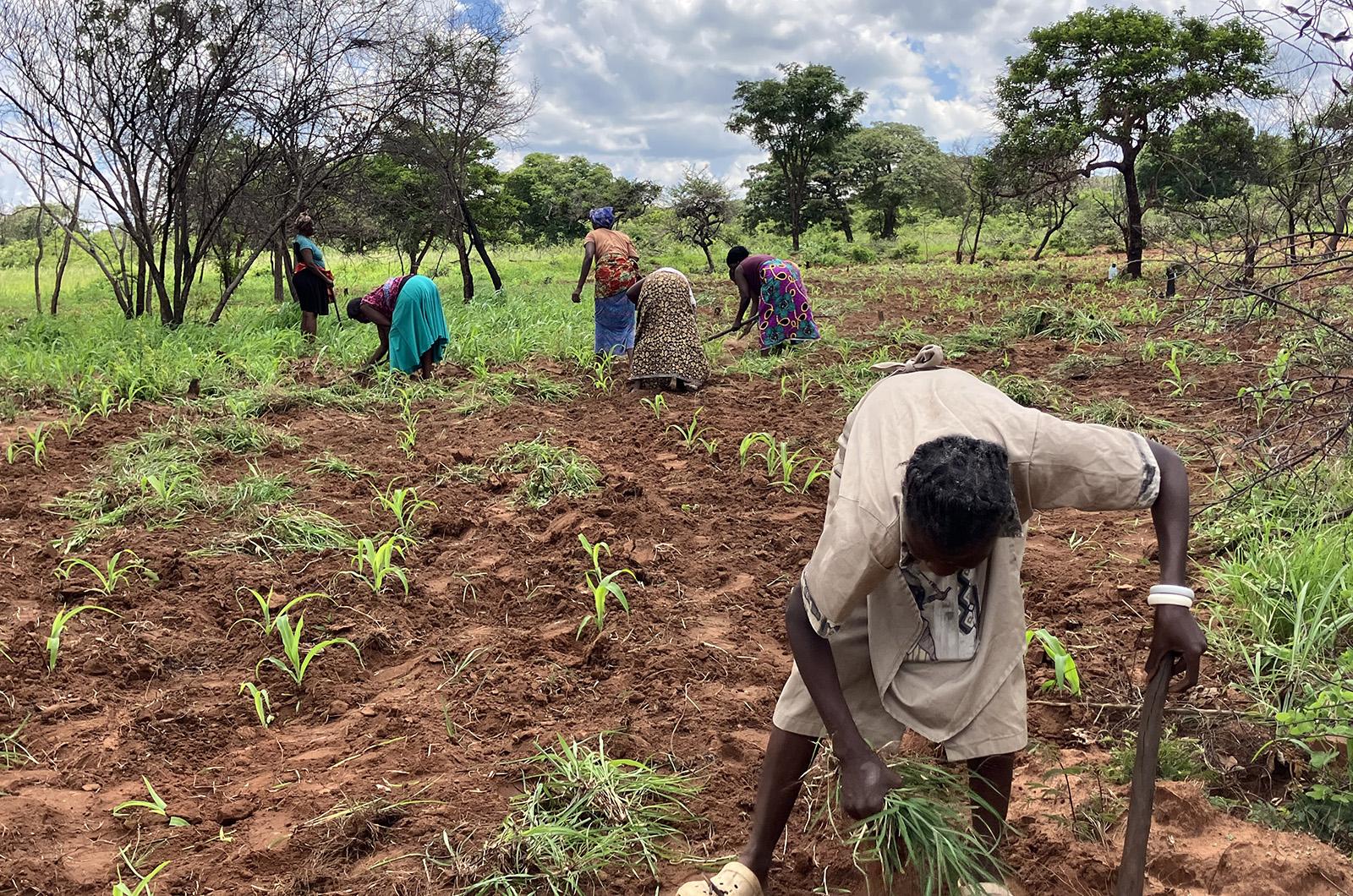In early January, I flew to Livingstone, Zambia with Janet Holladay to visit the community that my nonprofit, the African Artists Community Development Project (AACDP), has been helping to support I had not been to Zambia in three years and was eager to see the communal farm the began during the pandemic.
During the flight, I thought of the longer African journey that began almost by accident 24 years ago.
In 1999, traveling with my two daughters through Zambia on the way to the Great Zimbabwe ruins, I bought a wooden carving at the Victoria Falls craft market. As we were about to leave, Foster Wachata, one of the craftspeople, asked me if he and his friends could send me home with some more carvings to sell in the United States. After considering for a moment, I said yes instead of no.
I am also an artist and know how hard it is to make a living, even in the U.S. It was easy to see how few tourists visited the market and how many artisans (150) were trying to feed their families with sales there.
Back home, I sold the wooden carvings, salad servers and bowls to my friends at Christmas. Eventually, I sold more crafts at Vineyard flea markets and church fairs. Thus my one-woman nonprofit, the AACDP, was born.
I sent additional profits to the Mama Bakhita Cheshire Home for children with disabilities located not far from where the crafts I sold were made, thus completing a little economic circuit.
Next, I began a doll-making project with the mothers and grandmothers of the children at Mama Bakhita so that they could earn some income. The 12 women became skillful artisans, but 13 years later the Covid crisis wrecked the Zambian economy and we needed to create a new way for this community to generate income.
It turned out that these indigenous women held the rights to buy traditional land cheaply and we shifted our focus in 2020 to starting a farm. The women had all grown up in the country and knew how to grow vegetables.
We ran a series of fundraisers and craft sales to help secure the farmland, cultivate it and install a solar pump and irrigation system. I had seen videos of the farm developing but now, three years later, here I was about to land and see the Zambezi Community Farm for the first time.
After two days of travel, it was a pleasure to walk down the stairway of the small plane into the balmy breeze and be met by Sydney Mwamba, the general manager of AACDP since 2008. He strode towards us with a wide grin. During Covid, when I could not travel to Zambia, Sydney ran the whole show, arranging for the land sale with Chief Mukuni and the Zambezi women, and supervising the first well going in along with the setting up of water systems to get the fields to produce even during drought.
Sydney drove us to the Mama Bakhita Cheshire Home where I had often stayed over the years. The rooms are simple, the food local and tasty, and I have always enjoyed the comfortable camaraderie of Sister Clarina and Sr. Bernadette, who live there and manage the programs.
Mama Bakhita is the only special needs school for children with severe disabilities in all of Zambia’s Southern Province, providing rudimentary physical therapy, clothing, wheelchairs, food and medical treatment and education. The school can only support 25 children and there is a waiting list of more than 200.
Janet and I spent the weekend setting up our art space on the porch near the classrooms. On Monday we painted with groups of six at a time. Many of the children were new to me, since it had been three years since my last visit, but half of the group had made art with me previously. The children have a wide variety of disabilities — cerebral palsy, Down syndrome, autism, epilepsy —but our set up makes expression with paint or clay available to everyone. The pleasure of moving paint around and choosing colors is judgment-free and liberating.
On Monday, we drove to the farm where women who had been doll makers since 2010 were now planting and cultivating corn and peanuts. It had been an adjustment, but I could see as I helped with the weeding that these industrious women were excited and motivated to grow crops for food and income. What what a thrill it was for me to finally see all that had transpired in the previous two years.
Whether sewing dolls or planting seedlings, it is not uncommon for the women to break into spontaneous song. Hoeing alongside them, I marveled that a simple “yes” 24 years ago had forged such a deep commitment. I am forever bound and forever grateful to this hardworking community of women who were willing to trust this dogged white woman. In return, I will not give up searching for ways to help them to earn a livelihood in the devastated post-colonial Zambian economy.
Marsha Winsryg gace a talk about her work in Zambia at the West Tisbury Library on Saturday, April 22 at 2 p.m. She will give another talk at the Oak Bluffs Library on Saturday, May 6 at 2 p.m.




Comments (1)
Comments
Comment policy »